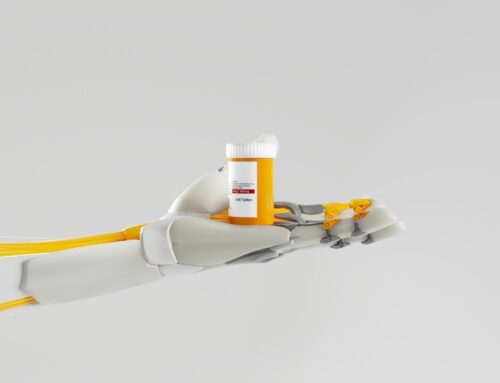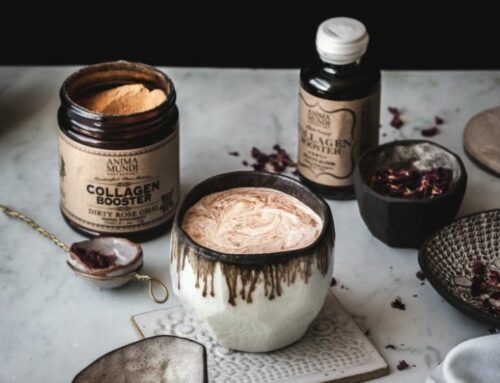3 skincare superheroes that can save your skin from sun damage, hyperpigmentation and dull skintone. Discover the latest innovation in skincare

Summer can be a challenging time for both skin and hair, as they are exposed to various environmental factors and lifestyle choices, leading to long-term damage. However, there are several skincare superheroes on the market you may not be aware of, but that can prevent the skin from premature ageing and hyperpigmentation. At young age we don’t notice the immediate damage and the actual signs of ageing skin and hair, caused by the sun, the environmental pollutants and the number of cocktails consumed at the beach. Approaching 40, however, we sober up as we start seeing a different picture: dry dull skin with dark spots vs the sun kissed glow of our youth, rough and frizzy hair vs sexy bedroom salty sprayed hair style.
Despite that we can’t blame all our skin and hair issues on the sun, let’s talk exactly how summer sun is damaging your skin and what you can do to stop those processes.
SKIN most common issues during and post-summer:
- Dehydration: hot weather and increased sweating can lead to dehydration which can make the skin appear dull and dry.
- Hyperpigmentation: sun exposure can trigger the production of excess melanin leading to dark spots and uneven skin tone
- Premature ageing: you may ask how exactly the sun causes premature ageing? One of the few things we know about the sun is that UV radiation penetrates the skin and damages collagen and elastin, the proteins responsible for maintaining the skin structure and elasticity. Over time, repeated exposure to UV rays can lead to the breakdown of collagen and elastin fibres, resulting in sagging skin, wrinkles and fine lines. How do we fight that? Read further in this article. Another damage that the sun causes is the formation of free radicals. Free radicals are highly reactive molecules that can damage cellular structures, including DNA, lipids and proteins. This oxidative stress can accelerate the ageing process and lead to several skin issues. Below we have a few suggestions for you how to fight free radicals in summer.
Finally UV rays can directly damage the DNA in skin cells. If DNA repair mechanisms are unable to correct this damage, it can lead to mutations in skin cells, increasing risk of cancer and contributing to premature ageing.
Summer Skincare Superheroes




§ One of the most potent skincare superheroes for sun damaged skin is Vit C, a powerful antioxidant that can neutralise free radicals caused by UV exposure. You can use Vit C orally but also topically. This “basic” and relatively accessible vitamin has many superpowers. One of them is the promoting collagen production. In summer we lose a lot of collagen. That’s why if you want to do a skincare boost with Vit C ampules , the best time to do it is after the summer. Vitamin C is also great for hyperpigmentation as it aids brightening the skin. What you need to know when choosing the right Vit C skincare product, be aware that you need to look for products using stable forms, such as ascorbic acid, tetrahexyldecyl ascorbate or sodium ascorbyl phosphate. Vit C is also sensitive to light and air, which can cause it to degrade and lose effectiveness. Look for products with air-tight, opaque packaging or dark-coloured glass bottles that protect the vitamin C exposure. The concentration of vitamin C in skincare products typically ranges from 5% to 20%. For most people, a concentration of 10% to 20% is effective without being irritating. However, if you have a sensitive skin, you may try lower concentrations first.
Sometimes vitamins C products contain additional beneficial ingredients like vitamin E, ferulic acid or hyaluronic acid. Such combinations can enhance the antioxidant and moisturising properties of vitamin C.
§ The next best thing you can choose for your skin in summer is Niacinamide (vitamin B3), an anti-inflammatory and antioxidant ingredient that can help repair the skin barrier and reduce redness and sensitivity caused by sun exposure. It can also inhibit the transfer of melanin, leading to a reduction of the appearance of dark spots and improve skin tone.
Niacinamide is often combined with other ingredients. For example one really good highly concentrated niacin amide serum contains zinc as well, which is great for its inflammatory properties and for prevention of break outs and dark spots too.
Knowing what ingredients work, you can easily check what your next skincare products contains without wasting money on products with lots of artificial fillers and potentially harmful ingredients such as paragons, sulphates, artificial fragrances and phthalates. Always check the label of your skincare product and look for active ingredients that are backed by science research and known to provide benefits for the skin.

Another group of skincare superheroes are Retinoids such as retinol, tretinoin and retinaldehyde (considered less irritating than the first two) are potent derivates of vitamin A, all known for their anti-ageing and skin renewing properties (speed cell turnover, stimulation of collagen production, keeping pores clean, balancing oil production, thickening the inner layer of the skin). Some doctors recommend them all year around, but in summer we recommend slowing down on this potent ingredient The reason is that retinoids can make the skin in summer more sensitive to the sun and increase the risk of sunburn and skin irritation. If you use them, make sure you do it at night, plus always apply broad-spectrum sunscreen.
What we recommend is Skin Cycling, a relatively new concept for skincare routine, which suggests using one night exfoliation, the second night retinoids, followed by two nights of intensive recovery: hydration and vitamins.
Another tip is choosing plant-based natural alternatives to retinoids as summer skincare. They are often referred to as “plant-derived retinols” or “natural retinoids”. They are milder and generally better tolerated by sensitive skin compared to synthetic retinoids. Here are some plant-based retinol alternatives to consider for your face: Bakuchiol, Rosehip Seed Oil, Carrot Seed Oil, Rosemary extract, Algae extract or Granactive Retinoid (a retinol alternative derived from a combination of retinoic acid and fatty acids).
In addition we suggest instead of retinoids finding natural alternatives which also can be quite powerful:
- Peptides are considered a skincare superhero that can support collagen production. They are a small chain of amino acids found in several serums or creams
- Hyaluronic acid, a powerful humectant that attracts and retains moisture in the skin keeping it hydrated and plump,
- Aloe vera, which has soothing and hydrating properties
- Grapeseed extract, resveratrol and green tea, antioxidant-rich plant extracts that provide additional protection against free radical damage
- Ceramides, natural lipids that help strengthen the skin barrier, keeping it protected and hydrated. They can be beneficial in maintaining skin health during the summer.
Remember that sunscreen is still essential, regardless of the skincare ingredients you use. Even with non-retinoid products, protecting your skin from UV rays is crucial for preventing sun damage and premature ageing. Always wear sunscreen with at least SPF 30, and reapply every tow hours when spending time outdoors. If you have specific skin concerns or conditions, consult with a dermatologist or skincare professional for personalised recommendations.
INNOVATIVE APPROACH TO SUMMER SKINCARE

§ Ingestible Sunscreen: Some supplements claim to provide additional sun protection by increasing the skin’s natural resistance to UV rays. While these are not a substitute for traditional sunscreen, they may offer an extra layer of protection when used in combination with broad spectrum sunscreen. One example of such supplement is HUM Nutrition Turn Back Time. It contains several ingredients such as: Polypodium leucotomos, which help shield the skin from the effects of sun exposure, Alpha lipoic acid (ALA), which protects against damaging oxidative stress and finally vitamin C helps boost skin cell protection + collagen production. There are of course other great products on the market, such as the Moon Juice Super Beauty. This supplement is a powerful combination of antioxidants that works to protect from accelerated aging while promoting collagen production, elasticity, and cell vitality. Key Ingredients:- Glutathione: Works inside the mitochondria to help maintain healthy cellular function and structure and potentiates Vitamin C & E- N-Acetyl-Cysteine.
§ By now, you’re probably more than acquainted with a gua sha and ice globes, so you’ll be pleased to hear that there are some exciting new home devices en route that promise to take your skincare routine to a new level. First, the TheraFace Pro, which employs the percussive therapy that made the Theragun a go-to amongst gym-goers, alongside light therapy, microcurrent and cryotherapy technology, to boost your overall skin health.
Meanwhile, the nifty SolaWave also offers microcurrent, light therapy and facial massage to make skin glow – plus, it slots easily into your make-up bag. Using LED light at home is becoming more popular among women looking to heal and support their skin Like everything else you ned to make a habit out of it and be consistent. Otherwise you won’t see results.
§ Sun-Activated Skincare: Look for innovative sunscreen formulations that adapt to changing environmental conditions. Some sunscreens contain ingredients that are more effective when exposed to sunlight, providing enhanced protection.
§ Hydration Monitoring Devices: Use wearable devices or smartphone apps to track your hydration levels throughout the day. Staying well-hydrated is essential for maintaining healthy skin.
§ High-Tech Sunscreen Application Devices: Some gadgets and devices are designed to optimize sunscreen application by ensuring even coverage on the skin, reducing the risk of missed spots.
While innovative methods can enhance your summer skincare routine, it’s important not to rely solely on them. Traditional sun protection measures like wearing sunscreen with adequate SPF, seeking shade during peak sun hours, and wearing protective clothing should always be a priority to safeguard your skin from harmful UV radiation.
Subscribe for Mums in Heels Newsletter and get more fresh tips on sustainable skincare, women’s health and wellness rituals and recipes. In our newsletter we curate exclusive content available only to our Newsletter Subscribers. Join the private experience here.
Sign to receive the complete experience
with unpublished content & community deals


